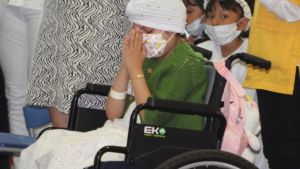A new study that examined the Catholic Church in Latin America has found a significant reduction in the number of baptisms, as well as the other sacraments, since 2000. The study, titled “La Misión de la Iglesia en los Países de América Latina” (“The Mission of the Church in the Latin American Countries”), focused on the four regions of Latin America: Mexico, Central America, South America, and the Caribbean.
The report, issued by Latin American and Caribbean Episcopal Council (CELAM), observed that the number of baptisms fell from 8,197,000 in 2000 to 5,135,000 in 2020, with other sacraments mirroring this decline. Furthermore, the diminished rates of baptism are accompanied by a decline in the number of sacraments administered and an overall weakening of Catholic affiliation.
It went on to note that Latin America seems to have fallen into the same downward trend in both baptisms and birth rates that has troubled North America and Europe since the 1970s. These findings led the authors of the study to suggest that “the fall in the number of Catholics is a not-too-distant scenario.”
Double the priests, though
While the numbers of baptized and practicing Catholics have fallen, however, the number of active priests in Latin America has more than doubled from 10,957 in 2000 to 22,016 in 2020. This is only partially promising, however: While there are many priests, the number of seminarians has fallen to the scant rates of 1990. Similarly, the number of female religious was also seen to decline.
These findings led Archbishop Jorge Eduardo Lozano, CELAM’s secretary general, to write:
“The decrease in the number of seminarians poses challenges for the future regarding the number of priests and the pastoral care of communities.”
Archbishop Lozano added, “Consecrated life, both male and female, has been an important pillar of the Church in Latin America, providing a constant missionary presence and a valuable social service through its works.”
The archbishop went on to muse that a decline in both male and female religious vocations places the future of these important works of the Church in jeopardy. He wrote that the valuable data provided by the study will allow members of CELAM to “reflect and search for pastoral strategies,” to address the future challenges of the Church.
Archbishop Lozano wrote:
“The Church’s evangelizing mission in this culturally and spiritually diverse region remains vital, and we must be ready to adapt and respond to the changing needs of our faithful.”




